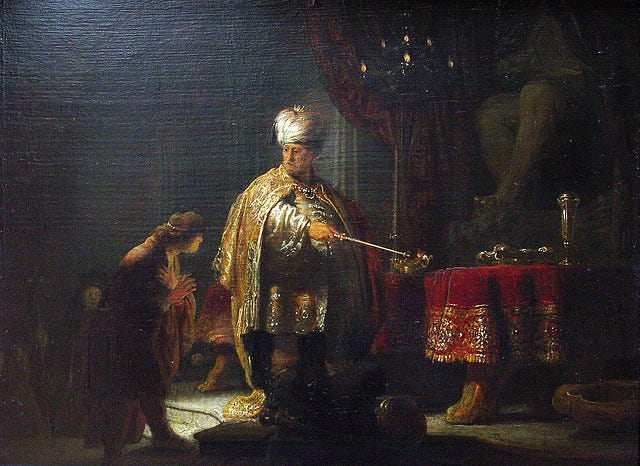Christian Education: God as Master Teacher
In the Old Testament book named after him, we have the story of Daniel, an Israelite captured and living in exile in the ancient city of Babylon from 605 B.C. (Daniel 1:1) until the third year of King Cyrus (536 B.C.; Daniel 10:1).[1] The first chapter of Daniel tells us much about who he is as one included in King Nebuchadnezzar’s initial decree,
“to bring some of the people of Israel, both of the royal family and of the nobility, youths without blemish, of good appearance and skillful in all wisdom, endowed with knowledge, understanding learning, and competent to stand in the king’s palace, and to teach them the literature and language of the Chaldeans… They were to be educated for three years, and at the end of that time they were to stand before the king.”[2]
As we continue to read the story, our tendency is often to focus on what Daniel does in order “not to defile himself with the king’s food, or with the wine that he drank.”[3] We read about how Daniel and his friends ask to be tested for ten days of non-Babylonian food, letting their appearance be compared to those eating the king’s food, for most certainly his breaks Old Testament food laws (among other reasons[4]). We also read how, “At the end of ten days it was seen that they were better in appearance and fatter in flesh than all the youths who ate the kings food.”[5] Truly, Daniel and his friends are role models of faith for us now.
But then we come to Daniel 1:17, in which the writer records that, “As for these four youths, God gave them learning and skill in all literature and wisdom, and Daniel had understanding in all visions and dreams.” Remembering Daniel 1:4, we recall that Daniel and his friends are already listed as “youths without blemish, of good appearance and skillful in all wisdom, endowed with knowledge, understanding learning, and competent to stand in the king’s palace.” Why the double inclusion of this information in verses 4 and 17? What does it tell us about Daniel? What does it tell us about God?
The double inclusion is important in that it reveals to us that God has already given Daniel and his friends great learning capacity (1:4) in anticipation of their ultimate capability three years later (1:17). Keil and Delitzsch, in their Commentary on the Old Testament, write:
“Skillful, intelligent in all wisdom, i.e. in the subjects of Chaldean wisdom, is to be understood of the ability to apply themselves to the study of wisdom. In like manner, the other mental requisites here mentioned are to be understood, having knowledge, showing understanding, possessing a faculty for knowledge, a strength of judgment, in whom was strength, i.e., who had the fitness in bodily and mental endowments appropriately to stand in the palace of the king, and as servants to attend to his commands.”[6] (emphases ours)
The youths’ dramatic didactic development seems to have much to do with their obedient response to God’s gifts. Again, from Keil and Delitzsch:
“As God blessed the resolution of Daniel and his three friends that they would not defile themselves by the food, He also blessed the education which they received in the literature and wisdom of the Chaldeans, so that the whole four made remarkable progress therein.”[7]
Daniel’s story illustrates the fact that our progress depends on God’s process – one He has initiated, planned for, and provided structure, support, and challenge for to serve and educate as His creation’s Master Teacher.
Painting: Daniel and Cyrus Before the Idol Bel, Rembrandt (1633).
[1] ESV Study Bible, notes.
[2] Daniel 1:3b-4.
[3] Daniel 1:8.
[4] “It is unlikely that the king’s food would have been prepared in accordance with the standards of the Mosaic law. It is also possible that it would have been previously offered to Babylonian gods in a pagan temple.” (Handbook on the Prophets, 295).
[5] Daniel 1:15
[6] Keil & Delitzsch, p. 535.
[7] Keil & Delitzsch, p. 541.




